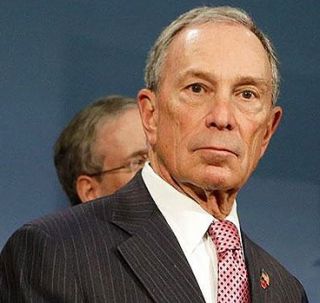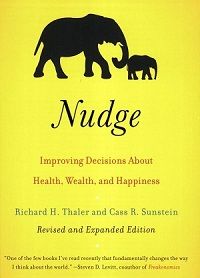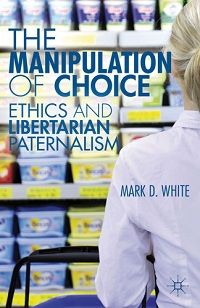Ethics and Morality
Ban Nudges, Not Soda
What are the ethical problems with libertarian paternalism?
Posted February 22, 2013


Medical professionals agree that, for most people, sugar has no nutritional value and contributes to a number of maladies and illnesses. Surely that’s enough to declare sugary drinks bad choices, right? Furthermore, if the government is going to discourage sugar consumption, isn’t a subtle nudge away from large sodas a less intrusive method than taxing it or banning it altogether? As I explain in my new book, The Manipulation of Choice: Ethics and Libertarian Paternalism, the answer to both of these questions is no.
Susan.

Susan.
Those who judge Susan’s decision to drink a soda, however, don’t take those other reasons into account because they’re focused solely on soda’s nutritional impact. As a result, they interpret an unhealthy choice as a bad choice overall. However, no one can say it’s a bad choice except Susan, because she has more information about her interests than does anyone else. If she decides to drink a Coke or a mocha latte, regulators should give her the benefit of the doubt and assume she felt it was a good choice, rather than judging her choice based on their limited idea of what are interests are (or should be).

If elected officials nonetheless decide that drinking sugary beverages represents a bad choice that they wish to discourage, they have several options, including bans and taxes. Another method, proposed in Richard Thaler and Cass Sunstein’s bestselling book Nudge, recommends making small changes in the people’s choice options to take advantage of common defects and biases in people’s decision-making processes, and thereby subtly “nudge” them into making better choices in their own interests. One example in their book is automatic enrollment of new employees in 401(k) programs (with an option to withdraw), designed to combat the laziness and procrastination that Thaler and Sunstein claim leads to low enrollment. The soda ban also counts as a nudge insofar as it doesn’t prevent anyone from drinking as much soda as they want, but it makes that choice somewhat more difficult and therefore somewhat less likely.
Many have criticized the ineffectiveness of the soda ban, but while it’s certainly clumsier than most nudges it suffers from the same problems. Not only do regulators presume to know people’s true interests and then manipulate their choices to benefit them, they do so by taking advantage of the same defects in people’s decision-making processes that motivated the nudge in the first place. Nudges don’t help people improve their decision-making; rather, they help people make the decisions they were nudged to make. When the nudges are effective, regulators claim that people are making better choices, but they’re better only according to the regulators’ judgment, not the interests of the people being nudged.

Of course, individual health was not the only rationale given for the ban on large sodas. It was also meant to combat public health costs related to obesity, which are based on people’s own interests and therefore don’t raise the same concerns about usurping them. Rather than try to nudge personal behavior to reduce public costs, we could reorient the health care system toward individual accountability, so the costs of personal behavior become the responsibility of the person engaging in the behavior rather than the public.
Once Susan realizes that every soda she drinks increases her expected medical costs, she can make her best choice according to her interests, including the consequences of her behavior, without the help of a nudge. People should be trusted to tend to their own interests so our elected leaders can concentrate on problems that affect us all—which is a nudge we can all agree on.
-----
For more blog posts on paternalism and nudges, see the Economics and Ethics blog; my latest is a response to Cass Sunstein's review of Sarah Conly's book Against Autonomy: Justifying Coercive Paternalism in New York Review of Books.
You're invited to follow me on Twitter and my website/blog, as well as the blogs Economics and Ethics and The Comics Professor.


